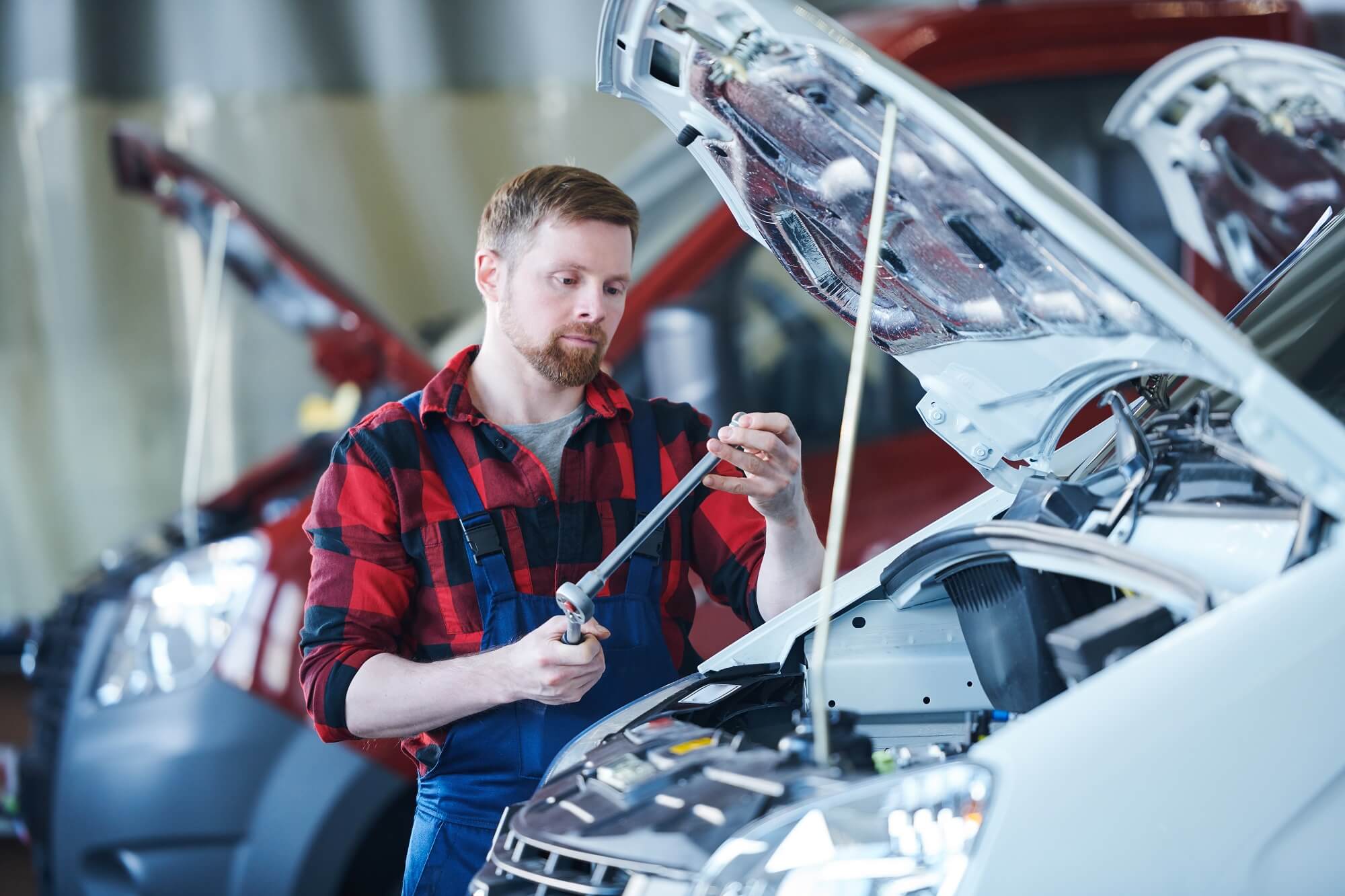Most Common Car Problems
Transmission Fluid Leaks
Transmission fluid leak is one of the most common car problems. It plays an important role in keeping components lubricated. It also works as hydraulic fluid and coolant, in cars with automatic transmission. Transmission fluid leaks occur when small holes are formed on fluid seals, gaskets, and lines. These small holes allow the transmission fluid to leak out. If the leak is so bad, your transmission will lose its efficiency, and eventually, it would fail, whether it’s from internal pressure loss or overheating. It’s so easy to identify transmission fluid leaks since they appear as a big red puddle under your car. If you see this, then it’s time to address the transmission issue. To prevent transmission fluid leakages before they happen, have your car’s transmission flushed after every 100,000 miles.Uneven Tire Wear
You might not easily notice uneven tire wear when you’re driving, but worn off tires can be unsafe since their grip on the road is reduced. Checking your tires regularly will help you identify the worn-out tires. To check if your car tires are worn out, jack up your vehicle and inspect both the inside and outside of each tire, noting whether there are any dents or dips in the tire tread. Also, ensure you rotate and align your wheels frequently. How often you rotate your tires depends on the vehicle type and wheels. However, we recommend you rotate your wheel every time you get your oil changed. Your car tires will wear more evenly when you rotate them regularly.
Engine Sputtering
An engine is the most-single essential and expensive part of a car. This means that if anything happens to it, your driving experience will get affected. Engine sputtering is among the most common causes of car breakdown because it brings about a variety of other issues. The two common causes of engine sputtering include the exhaust and fuel system. An exhaust manifold gathers exhaust gas. When there is a leak in it, your car engine will sputter or run unevenly. It can increase engine noise as well as poor engine performance. On the fuel system front, we have dirty fuel injectors. When the fuel injectors get clogged, they result in a sputtering engine and slow acceleration of the car. The fuel injectors can be unclogged if the problem is detected earlier. Otherwise, you might have to replace them. Other causes include a vacuum leak, bad or dirty spark plug, and dirty airflow sensor. When you take your car to the mechanic, he will inspect your vehicle’s exhaust system, fuel system, and other components. Often, engine sputtering is a symptom of a more serious problem lurking below the surface. If the issue is not diagnosed and repaired in advance, your vehicle will most likely become hard to start and eventually stop running.Oxygen Sensor Failure
When talking about common car problems, we can’t forget to mention oxygen sensor failure. This is a very common problem especially for older models of cars. The oxygen sensor is an important part of your vehicle’s exhaust system. It’s responsible for detecting uncombusted oxygen in the exhaust. Contaminants that enter the exhaust might cause oxygen sensor failure. This contaminant includes phosphorous from excess oil consumption and silicates from the engine’s internal coolant leaks. Symptoms of a failing oxygen sensor include jerky acceleration, rotten egg smell, and rough engine sounds. A broken oxygen sensor can destroy your car efficiency. It can also cause idling problems, causing your vehicle to shake and jerk at a steady throttle. This is not only bad for your driving experience but for your fuel consumption too. The only way to fix this problem is to replace the oxygen sensor. When replacing the sensor find a sensor, that’s similar to the original with the same number of wires. When one oxygen sensor fails, there’s a high chance that the other oxygen sensors may fail too. Therefore, replace all of them at the same time to restore your car performance.Steering Issues
Symptoms of steering issues include shaking of the steering wheel, vibrations when driving, a loose steering wheel, difficulty turning the wheel or strange noise while driving. The cause of most steering issues includes wheel bearings or damaged suspension components. When you experience the issues while driving at higher speeds, your car might have wheel balance issues. If you’re experiencing these issues, search for a cheap auto repair near me and take your car to be checked out. Ensure your car is serviced right away. Steering issues possess a greater threat to your safety and the safety of others on the road.Noisy Breaks
Worn out, dusty or loose brake pad can cause noisy brakes. If you can’t see any problem with the brake pads, then it’s mostly there’s brake dust in the brake drum. If that’s the case, you better leave that work to a mechanic- brake dust is dangerous if inhaled accidentally. You should make it a routine to replace your brake your pads when they wear them.Poor Fuel Economy
If your car has a poor fuel economy, it most likely not going to pass an emission test. It also means that you're spending more money at the fuel pump and you’re not maximising your car’s miles per gallon potential. There are so many things that can affect your car’s fuel economy, so pinpointing the underlying cause can be very hard. It’s therefore important to take your car for inspection after one year or two, to ensure that all components are working perfectly. Some causes of poor fuel economy include suspension issues, transmission issues, poor wheel balance, dirty air filters, and others. Your driving habits also play a critical role in influencing your fuel economy. For example, if you often use the hand brake or speed up fast, your fuel economy won’t be good as compared to when you drive safely.
Leave a Comment